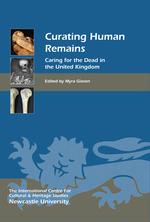The homecoming of Ovaherero and Nama skullsOverriding politics and injustices
In October 2011, twenty skulls of the Herero and Nama people were repatriated from Germany to Namibia. So far, fifty-five skulls and two human skeletons have been repatriated to Namibia and preparations for the return of more skulls from Germany were at an advanced stage at the time of writing this article. Nonetheless, the skulls and skeletons that were returned from Germany in the past have been disappointingly laden with complexities and politics, to such an extent that they have not yet been handed over to their respective communities for mourning and burials. In this context, this article seeks to investigate the practice of ‘anonymising’ the presence of human remains in society by exploring the art and politics of the Namibian state’s memory production and sanctioning in enforcing restrictions on the affected communities not to perform, as they wish, their cultural and ritual practices for the remains of their ancestors.




